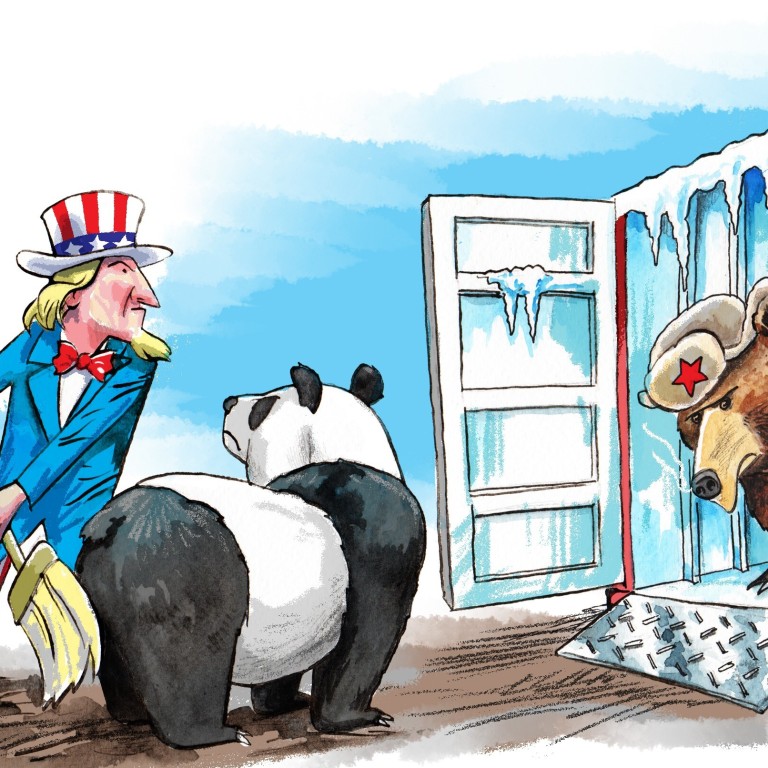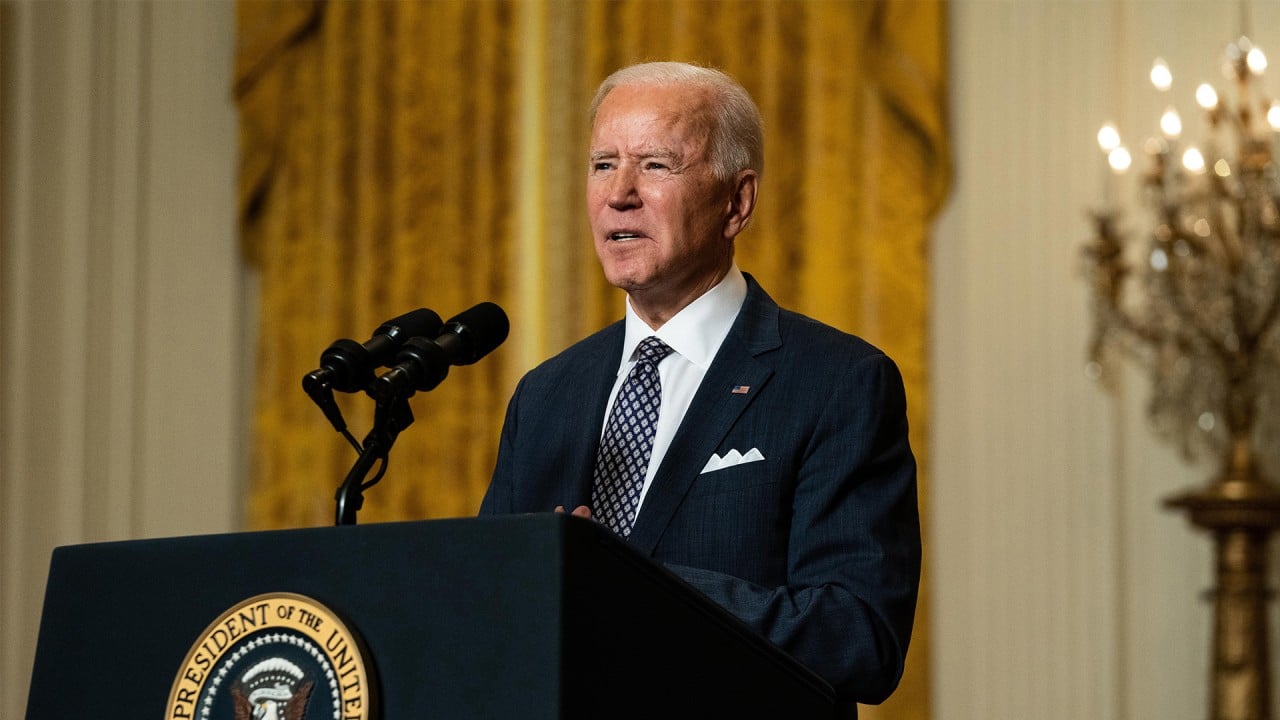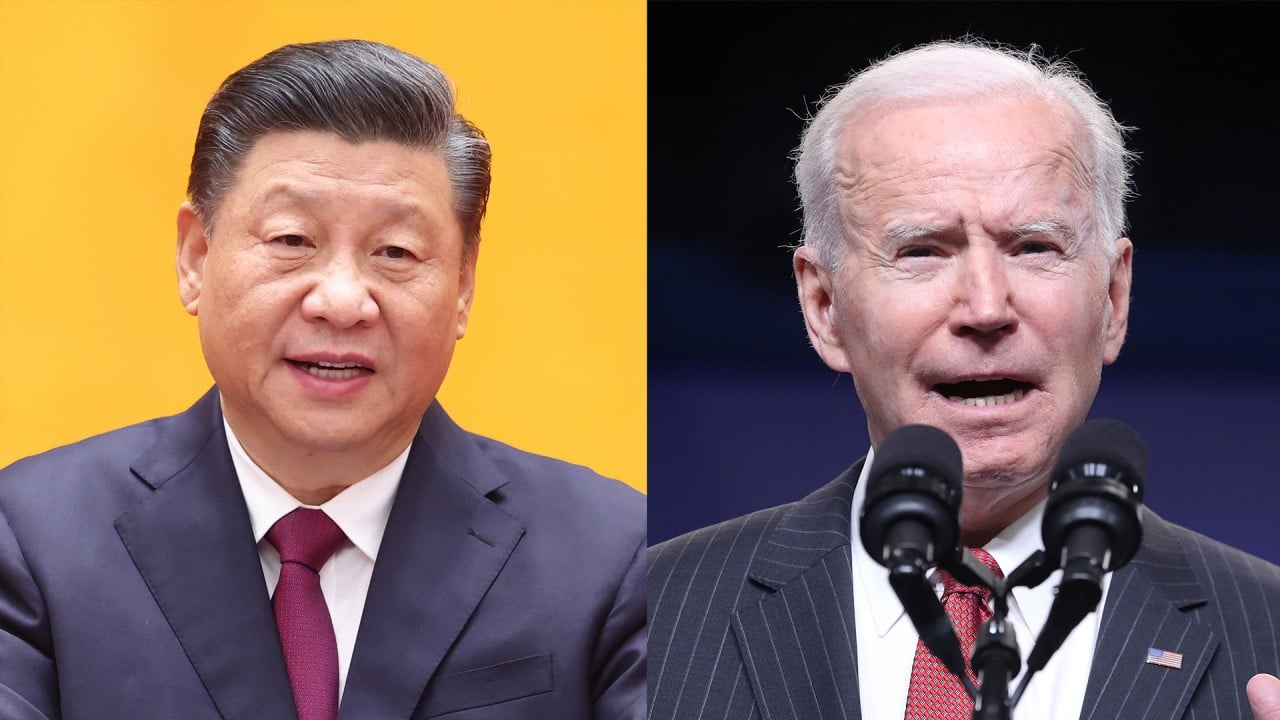
US must ditch its Cold War containment obsession – China is not the Soviet Union
- Instead of understanding Beijing on its own terms, the basis for peaceful coexistence, US officials are talking up a new cold war and risking conflict
- Meanwhile, China must beware the dangers of stirring up nationalism, however righteous
For a quarter of a century now, I have taken his advice to heart. After all, Lee, anything but a communist, was strong-minded about world politics and well respected in the Washington and New York military-academic lobbies – as much as he was in Beijing’s.
He also said that Beijing’s “we’re back and we’re big time again” self-regard might well scare the living daylights out of people and would trigger a military balancing, whether Beijing liked it or not – which is exactly what has happened.
But at what point does balancing go overboard? A quarter of a century is not a massive stretch in terms of Chinese timekeeping, but by the tick of an American clock it seems a near eternity. Alas, right now, we are not where we should be: even with the comically one-dimensional Donald Trump gone, Washington seems stuck in the rhetorical rut of needing another old-style Cold War as a conceptual cushion to lean on.

03:29
US and EU must prepare for ‘long-term strategic competition with China’, says Biden
So, if you construe Communist China as the second coming of the former Soviet Union, then you’ve got a match made in American-exceptionalism heaven. But China is not that. Where do we see it invading countries, threatening to bury everyone in history’s ash and seriously threatening Western security?
Its preoccupation is regional, not global. Taiwan (not recognised as a separate state by the UN or, for that matter, the US) is a continuing object of the People’s Republic of China’s geopolitical lust. So don’t you dare try to chip away or otherwise destabilise its borders, or tamper with its core sovereignty, which includes Taiwan, of course.
Beijing must recognise its own mistakes in US-China relations
Yet, unless we better understand Beijing on its own terms, then its every other move and decision will tend to trigger nightmares of Stalin, Siberia, Mao, the Red Guard and the entire creepy cast of associated menaces.
Today’s China displays many market characteristics and peppers its political persona with more forward-looking ideas than Trump’s Republican Party (okay, not a high standard). And though not enough American “China experts” appear to notice, Beijing is redefining superpower competitiveness in a modern way that eludes cliché, except in those endlessly repetitive reverences about the Communist Party’s total goodness.
But up against what? A dumb, super-stodgy, flaccid regime that will collapse overnight of its own overweight primitiveness if only you maintain neo-containment pressure? Or an evolving state-party that accepts as definitive such core norms as the responsibility of aiming to feed and house all its people – the first duty of non-shameful governance?
Call that communism, or even socialism, if you are addicted to political-science topology; but in itself those goals do not strike one as illegitimate, much less evil, even if achieved via a peculiar one-party system.

00:54
US-China confrontation would be ‘disaster’, Xi says in first phone call with Biden
Maybe the Biden administration is indeed clinging to the collective wisdom of the former administration for its China outlook, at least until it can escape the dark woods of the past election.
As for the Xi government, stirring up nationalism, however righteous, really is playing with fire; a dramatic change in the wind might blow it right back in Beijing’s face unless the burn is very carefully controlled.
China urged to call off the Wolf Warriors to build ties with Biden
Does the American way of war inspire China’s military sectors to run scared, even over-budget? From the West Coast, a veteran leader of an East Asian peace nonprofit organisation wisely points out: “Are we in danger of being attacked by China? Are we by any chance encouraging China to arms-race beyond its self-defence needs?”
The US must clear its mind of the delusion of neo-containment as the magic killer bullet of communism. On the contrary, the grand delusion is more of a danger to the US.
Loyola Marymount University Clinical Professor Tom Plate is the author of “In the Middle of China’s Future” and “Yo-Yo Diplomacy”

